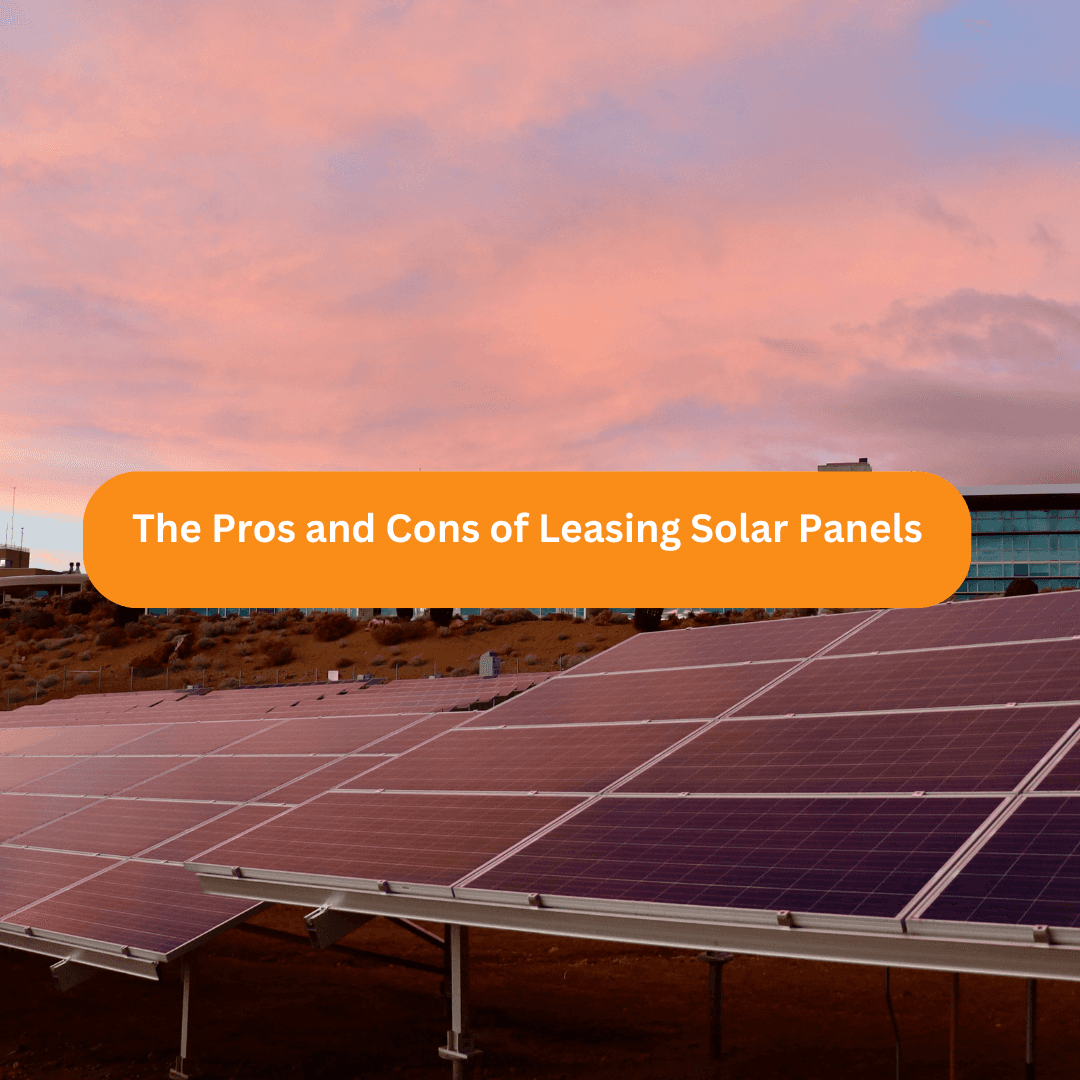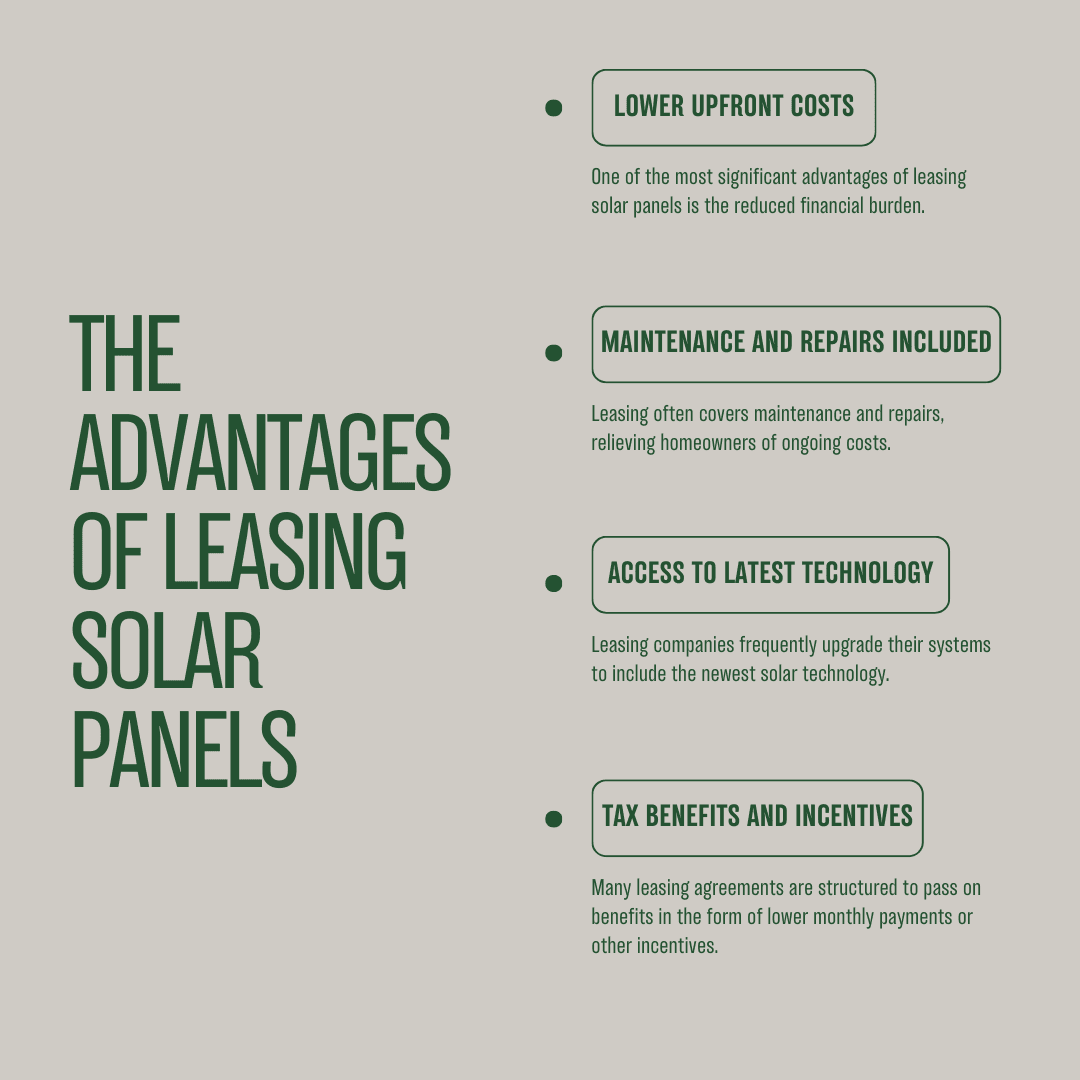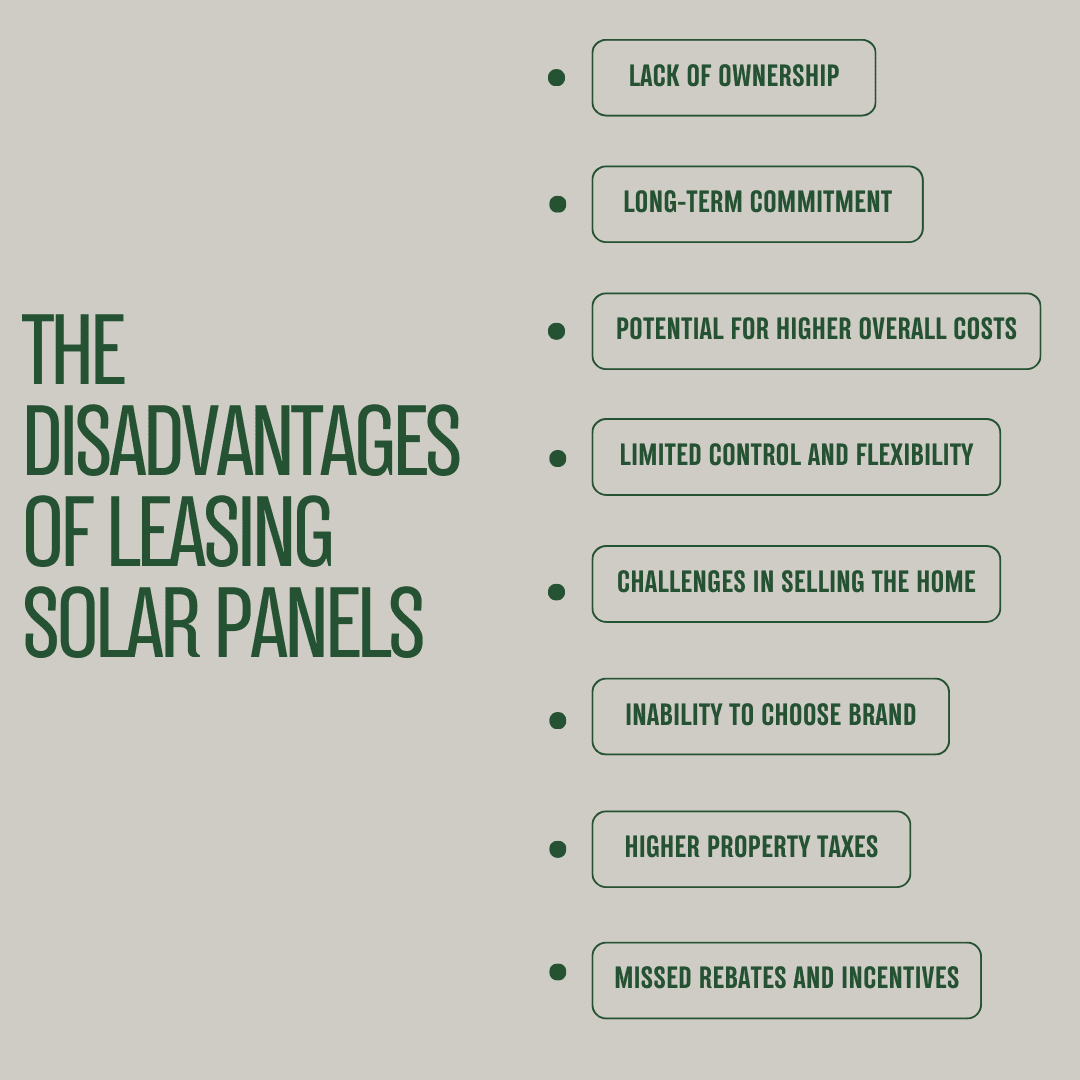The Pros and Cons of Leasing Solar Panels - Which is Better?
Oct 24, 2024

As renewable energy continues to gain momentum, many homeowners are now looking to see how they can decrease the carbon footprint while saving on their energy costs as well. One of the most popular options has been solar energy which can be made accessible by leasing solar panels. Of course, this is an attractive proposition but one that comes with the negative advantages and disadvantages that would be fully critically considered by any lessee.
What is Solar Panel Leasing?
Leasing solar panels refers to some sort of agreement between the homeowner and the solar energy company via which he/she can utilize the solar panels installed on his or her property without having the ownership rights. Instead of investing in an enormously huge amount of money to purchase the solar panels completely, the person pays a fixed amount monthly to lease the system for some agreed time scale usually during 15 to 25 years.
This kind of leasing allows covering not only the installation of the solar panels but possibly also maintenance and monitoring services. This way, while still enjoying the benefits of using solar power, homeowners can avoid the troublesome nature and intricacies of owning a system that needs repairs and upgrades.
This hassle-free approach makes solar energy more accessible and appealing to anyone deterred by the cost or logistical challenges of installing solar panels on their property. In general, solar panel leasing is an easy entry point into renewable energy.
How Does Solar Panel Leasing Work?
When a homeowner decides to lease solar panels, he enters into a formal contract with the solar energy company describing the terms of the lease itself, the term usually varies from 15 to 25 years.
One of the significant advantages of this type of lease is that the installation of the solar panels normally costs nothing for the homeowner, though they agree to pay a fixed amount every month over the period of agreement.
The leasing company assumes all responsibilities for maintaining the solar system in order to ensure efficient, reliable operation over the lifetime of the system. This form of leasing empowers homeowners to access the benefits of clean, renewable energy without the costs and hassles of ownership.
Plus, the energy produced by the solar panels can really help in paying off utility bills; thereby, the price of electricity is significantly brought down. These conveniences and savings benefits really make the benefits of solar energy very appealing to many homeowners who are interested in embracing solar energy.
Pros of Leasing Solar Panels

Lower Upfront Costs: One of the most significant advantages of leasing solar panels is the reduced financial burden. Homeowners can access solar energy without making a large initial investment, making solar power more accessible, especially for those without the capital to purchase a system outright.
Maintenance and Repairs Included: Leasing often covers maintenance and repairs, relieving homeowners of ongoing costs and the hassle of finding service providers if issues arise. This makes solar energy more appealing, as it allows homeowners to enjoy its benefits without the responsibilities of ownership.
Access to Latest Technology: Leasing companies frequently upgrade their systems to include the newest solar technology. This enables lessees to benefit from advancements in efficiency and performance without the need to invest in new equipment.
Tax Benefits and Incentives: While lessees do not receive the federal solar tax credit directly, many leasing agreements are structured to pass on benefits in the form of lower monthly payments or other incentives, further enhancing the affordability of solar energy.
Cons of Leasing Solar Panels

Lack of Ownership: One significant drawback of leasing solar panels is the absence of ownership. Homeowners do not build equity in the solar system, which means they miss out on long-term financial benefits, such as potential resale value.
Long-Term Commitment: Most leases last between 15 and 25 years, locking homeowners into a long-term agreement. This commitment can be a concern if their future plans change, particularly if they move or need to sell their home.
Potential for Higher Overall Costs: While monthly payments may initially be lower than utility bills, over the life of the lease, homeowners could end up paying more than if they had purchased the system outright.
Limited Control and Flexibility: Leasing agreements often come with restrictions on modifications, preventing homeowners from making changes, such as adding additional panels or upgrading equipment. This lack of flexibility can be frustrating for those seeking a customized solar solution.
Challenges in Selling the Home: Leasing can complicate the home-selling process. Prospective buyers may be hesitant to take on a lease agreement, leading to additional negotiations or difficulties in closing the sale.
Inability to Choose Brand: Homeowners typically do not have the option to choose the brand of solar panels installed. They are reliant on the leasing company’s choices, which may not align with their preferences for specific brands or technologies.
Higher Property Taxes: In some regions, leasing can result in a higher tax assessment, raising the property’s value and consequently increasing property taxes for homeowners.
Missed Rebates and Incentives: Lessees may miss out on rebates and incentives available only to those who purchase solar systems. These financial benefits can significantly offset the costs of solar energy, which can be a major factor for many homeowners considering their options.
Financial Considerations
A proper cost comparison is required while undertaking financial evaluation for leasing or buying solar panels. While leasing may seem cheap with low one-time upfront costs, homeowners must calculate their total payments throughout the term of the lease and compare them to the costs incurred while purchasing the solar system outright. Solar systems often require more upfront investment in buying one, but such can be significantly saved in the long run through higher efficiency in energy production and lower utility bills.
Another important factor is how the system installation impacts the value of the property. Homeowners benefit from the positive impact on a property's value because an installed solar system is often viewed as an investment because it pays for its own decrease in energy costs over time. With leased systems, the buyer will likely not realize any added value, which could further make future sales harder. Since buyers are suspicious about taking on a lease, offers could be discouraged or need to be negotiated at an extra cost.
Ultimately, a homeowner should take these financial considerations seriously and not only focus on immediate expenses but also save in the long run and how it will affect your value for your property when deciding to either lease or buy solar panels. A detailed analysis can ensure that a good financial decision is made and follows along with their future plans.
Environmental Impact
Leasing solar panels is an activity that considerably contributes to the reduction of carbon footprint for the homeowner. Generating clean energy, lessees are part of the larger shift toward renewable sources; however, they do not own the system. This shift cuts fossil fuel consumption and reduces greenhouse gas emissions in fighting climate change and achieving sustainability.
But there must be observed some potential downsides. Manufacturing and end-of-life disposal impact the environment of solar panels, especially with regards to what the manufacturing process puts in; substantive resources are used, and it also generates waste products at the end of the equipment's lifecycle. Although the leasing promotes renewable usage, homeowners must take into account the entire lifecycle of the equipment that is involved-from production until disposal. All of these factors are understood so a proper decision about solar energy may be made in which the following benefits of leasing are aligned with commitment to sustainability and environmental stewardship.
Conclusion - Leasing vs. Buying
In conclusion, leasing solar panels offers a compelling option for homeowners looking to embrace solar energy without a significant upfront investment. The lower costs, maintenance coverage, and access to advanced technology make leasing appealing. However, the lack of ownership, long-term commitments, and potential financial drawbacks are important factors to weigh.
Ultimately, whether to lease or buy solar panels depends on individual circumstances, financial goals, and preferences. Prospective solar users should carefully evaluate their options, considering both the immediate benefits and long-term implications, to make the most informed decision for their energy future.
